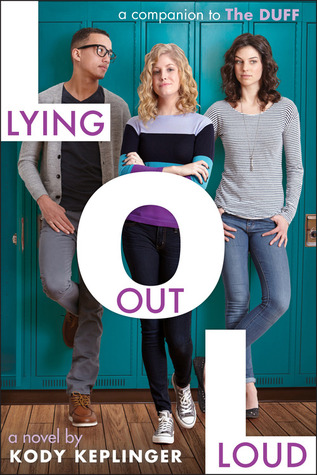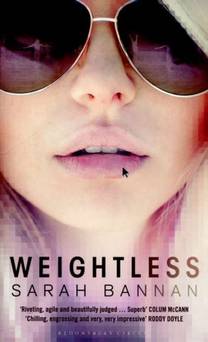Monthly Archives: April 2015
Untaken
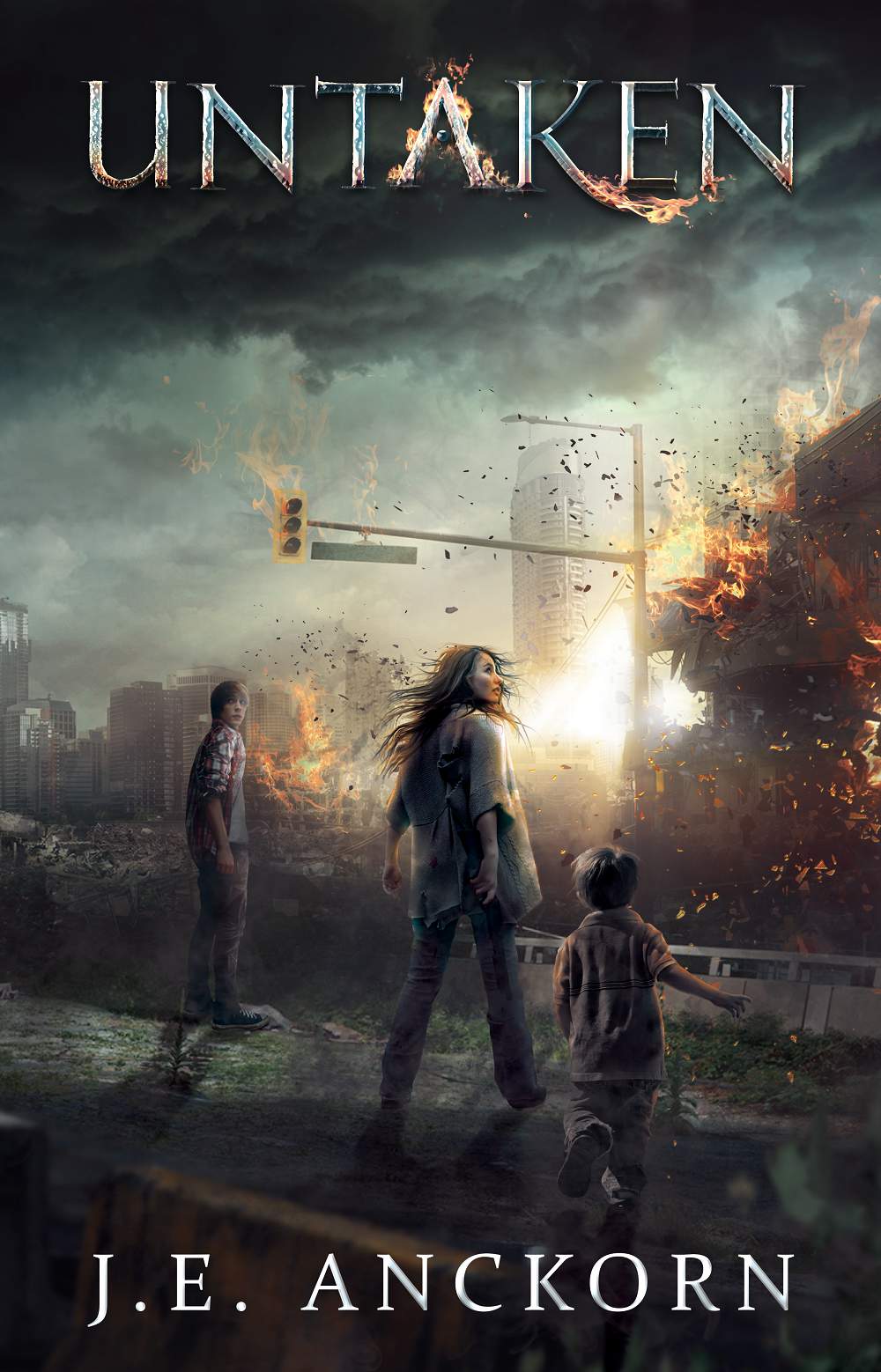 Untaken
Untaken
Curiosity Quills Press
March 23, 2015
Hardcover
262

It turns out that a real alien invasion is nothing like the Sci-fi shows 14-year-old Gracie loves. Not when it's your own family who are swallowed whole by those big silver ships. Not if it could be you next. In her search for her family, Gracie meets Brandon, a high school dropout who would never have been caught dead hanging out with a dork like Gracie before the world ended. Gracie isn't too crazy about Brandon either, but he has one thing she doesn't: A plan. Brandon's uncle has a cabin up in Maine, and If Gracie and Brandon can survive long enough to get there they can hide out until the Space Men pack up their ships and leave. Until the army guys come to rescue them, says Brandon. Brandon is big into army guys. Gracie has to admit that Brandon's Awesome Plan probably would have worked out great if wasn't for Jake. They found 5-year-old Jake, laying half-dead under the remains of someone's ranch house. He's a good kid, even if he won't-or can't- talk. But Jake has a secret, and when Gracie finds out what it is, the fragile new life they've started to forge looks set to break apart. When the people you've been counting on to put the world back together start hunting you down, alien invaders are the least of your worries.
Review:
“Untaken” is a new series that makes me feel as though I were given a gift by being allowed to read and review it. It puts a new take on the apocalyptic theme of an alien invasion, eventually evolving into dystopian territory.
I am going to say this right now, if you see the word “alien” and think it is not your deal, please reconsider and give it a try. The plot is one of survival, with the aliens being the catalyst for the events but not the central focus of the story. The true story is what constitutes humanity and how human humans react when placed under unimaginable circumstances and stress.
The central characters are three children: Gracie, Brandon, and Jake. Their stories are divided into three parts, with the first devoted to their separate lives before and during the initial catastrophic events. This format serves for developing their backstories and personalities in an extremely detailed way. It feels like you know the oldest two, Gracie and Brandon, personally before they even meet. Jake is more of an enigma, and that is a great feature in the story.
While the first part features a lot of action, the second and third parts are more of a slow burn. I love slice-of-life stories that take their time in building new worlds, and this is one of the best I have ever read. The writing is compelling and nearly flawless, leaving the reader to sit back and enjoy the book without the burden of superfluous details and a stuttering plot. It seems to be the beginning of a series, and I hope that is true. I really want to see what comes next.
I highly recommend “Untaken” to those who are 12 and up and looking for a promising new series. If you’re a fan of Mike Mullen’s “Ashfall”, it is something not to be missed. Warning: Once you start it, you may not be able to put it down.
This review is based upon a complimentary copy provided by the publisher in exchange for an honest review.
Content Warning:
Language, Violence,Mild (Re: Very) Sexual Situations, The Dog Dies (Pardon the spoiler, but that is the one type of spoiler I will always include in the content warnings.)
Three (Article 5)
Article 5, Book 3
Juvenile Fiction
Macmillan
2014-02-11
384

When Ember and Chase finally arrive at the safe house and find it in ruins, they follow tracks leading away until they find a group of refugees and join forces with them to seek the rumored settlement known as Three.
Review:
After reading “Three”, the finale to the wonderful “Article 5” series, I feel as though I have found a true unicorn. It is easily one of the strongest and most satisfying endings to a series I have ever read. It is all wrapped up nicely, nothing comes out of nowhere, the characters remain true to what has been established about them and their reactions throughout the series right until the very last sentence, and there is no excruciatingly long epilogue that feels as though it is trying to cram in an entire book. Perfection.
The action is essentially non-stop, and there are more than a few plot twists thrown in to keep things interesting. They all make perfect sense, effectively keeping the reader from experiencing “Dystopian Series Finale Whiplash”. This is something I truly appreciate, because so often the last book is the weakest, and the author drops in things never even hinted at in the previous series installments. None of that nonsense here. This plot is solid.
All of our favorite characters, including (of course) Ember and Chase, have a prominent story arc. They continue to grow and evolve according to the situations that they face, while also maintaining the personalities the author established way back in “Article 5”. All aspects of them are explored, and it truly feels as though the reader was a part of watching them grow from teenagers into mature young adults.
“Three” is by far the strongest of the “Article 5” series, which is a high compliment considering how much I have enjoyed them all. I can’t recommend it enough for those who have been reading the series all along. If you’re a fan of young adult dystopias with excellent world-building and character development, but have yet to read the series, by all means start now. I really don’t think you will regret it.
Thank you, Kristen Simmons, for sharing Ember and Chase’s world with us.
Content Warning:
Language, Violence, Sexual Situations
Intimacy Idiot
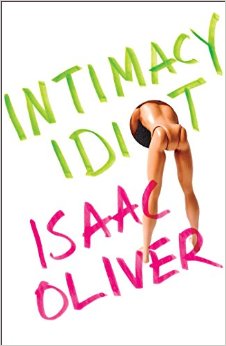 Intimacy Idiot
Intimacy Idiot
Scribner
June 2, 2015
Hardcover
288

This big-hearted, laugh-until-you-can’t-breathe collection of personal essays, stories, and riffs on finding love and intimacy in New York City announces the arrival of a “a monstrous new talent” (New York magazine) in the vein of David Sedaris, Augusten Burroughs, and Tina Fey.
In this uproariously funny debut collection, award-winning writer and performer Isaac Oliver serves up a comedic cornucopia of sketches, vignettes, lists, and diaries from his life as a young, fanciful, and extremely single gay man in New York City. Whether he’s hooking up with a man who dresses as a dolphin, suffering on airplanes and buses next to people with Food From Home, or hovering around an impenetrable circle of attractive people at a cocktail party, Oliver captures the messy, moving, and absurd moments of urban life as we live it today.
Since moving to New York a decade ago, Oliver has pined for countless strangers on the subway, slept with half the people in his Washington Heights neighborhood, and observed the best and worst of humanity from behind the glass of a Times Square theater box office. He also rode the subway during Breastfeeding Awareness Week and lived to tell the tale. Culled from years of heartbreak, hook-ups, and more awkwardness than a virgin at prom and a whore in church (and he should know because he’s been both), Intimacy Idiot chronicles Oliver’s encounters with love, infatuation, resilience, and self-acceptance that echo our universal desire for intimacy of all kinds.
Review:
The star rating for “Intimacy Idiot” is probably a bit misleading here, as I rated based on the average of all of the pieces. When it is good, it is very, very good. I was laughing so hard it hurts at some points. The problem is, when it is not good it falls completely flat. The writing is on point in all of them, but sometimes I simply felt disinterested.
Isaac Oliver seems like someone I would love to hang out with. He’s funny, intelligent, talented, and self-deprecating without coming across as though he wears a hair shirt and flogs himself every night before bed. Twice on Sundays. The stories manage to both give a peek into the world of gay dating, which is an unknown territory for some of us, while being relatable on so many levels to every single person reading it. The ratio of familiar to foreign is absolutely perfect.
As I said above, it unfortunately fell flat in many chapters, but I would much rather focus on the enjoyable parts, of which there were many. The book is at its heart a work of comedy, but it also evokes quite a sense of loneliness and longing. It changes tone swiftly and seamlessly, always keeping the reader on their toes. There is a natural talent for storytelling that shows in the writing, and I am anticipating reading more of Oliver’s works in the future.
I recommend “Intimacy Idiot” to anyone looking for a laugh and a well-written memoir. The chapters range in format from stories to lists to poetry, so what fell flat for me may strike a chord with someone else. The enjoyable parts make it well worth reading, no matter the issues you may have with other chapters. If you in any way do not enjoy reading about casual sex, though, I would give the book a wide berth.
This review is based upon a complimentary copy provided by the publisher in exchange for an honest review.
Content Warning:
As this is an adult book, there is no content warning.
The Liberation of the Camps: The End of the Holocaust and Its Aftermath
History
Yale University Press
2015-04-21
288

Seventy years have passed since the tortured inmates of Hitler’s concentration and extermination camps were liberated. When the horror of the atrocities came fully to light, it was easy for others to imagine the joyful relief of freed prisoners. Yet for those who had survived the unimaginable, the experience of liberation was a slow, grueling journey back to life. In this unprecedented inquiry into the days, months, and years following the arrival of Allied forces at the Nazi camps, a foremost historian of the Holocaust draws on archival sources and especially on eyewitness testimonies to reveal the complex challenges liberated victims faced and the daunting tasks their liberators undertook to help them reclaim their shattered lives.
Historian Dan Stone focuses on the survivors—their feelings of guilt, exhaustion, fear, shame for having survived, and devastating grief for lost family members; their immense medical problems; and their later demands to be released from Displaced Persons camps and resettled in countries of their own choosing. Stone also tracks the efforts of British, American, Canadian, and Russian liberators as they contended with survivors’ immediate needs, then grappled with longer-term issues that shaped the postwar world and ushered in the first chill of the Cold War years ahead.
Review:
“The Liberation of the Camps” is a book that manages to make itself unique in a history genre that can feel a bit crowded at times.
What sets the book apart is the liberal use of primary sources from a variety of different situations that occurred after liberation. Many of them, including the fact that many Survivors were kept in the camp for a long period after the actual liberation, are unknown to many people. It’s a very comprehensive resource for those with an interest in Holocaust history.
The one major flaw is that it can be dry at times. It’s definitely by an academic and meant for those with a scholarly interest in the Holocaust, but even by those standards it can be dry. I have a degree in history, so feel like I have seen both sides of the “dry history” spectrum. This one is not awful, simply dry in the medium range on the spectrum. Not enough to be boring, but not something to be consumed in large doses.
Overall, the content and primary sources make “The Liberation of the Camps” worth the time for those with an academic interest in the Holocaust. However, for anyone else it would probably be a bit of a bore. Four stars are given for the wealth of information provided, not the writing itself.
This review is based upon a complimentary copy provided by the publisher in exchange for an honest review.
Content Warning:
As this is an adult and non-fiction title, there are no content warnings.
The Wicked Will Rise
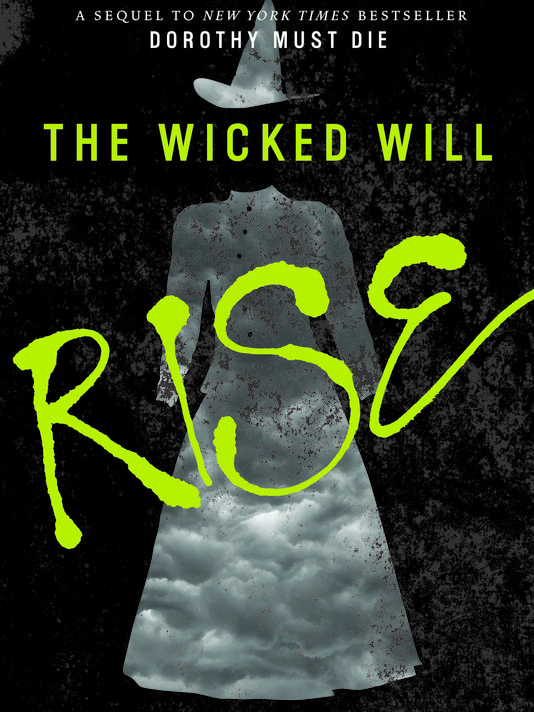 The Wicked Will Rise
The Wicked Will Rise
Dorothy Must Die, Book 2
HarperCollins
May 31, 2015
Hardcover
304

In this sequel to the New York Times bestselling Dorothy Must Die, who is good—and who is actually Wicked?
My name is Amy Gumm—and I'm the other girl from Kansas.
After a tornado swept through my trailer park, I ended up in Oz.
But it wasn't like the Oz I knew from books and movies. Dorothy had returned, but she was now a ruthless dictator. Glinda could no longer be called the Good Witch. And the Wicked Witches who were left? They'd joined forces as the Revolutionary Order of the Wicked, and they wanted to recruit me.
My mission?
Kill Dorothy.
Except my job as assassin didn't work out as planned. Dorothy is still alive. The Order has vanished. And the home I couldn't wait to leave behind might be in danger.
Somehow, across a twisted and divided land, I have to find the Order, protect the true ruler of Oz, take Dorothy and her henchmen down—and try to figure out what I'm really doing here.
Review:
I don’t even know where to begin with “The Wicked Will Rise”, but to give you fair warning, this review will include a lot of gushing.
Picking up immediately where “Dorothy Must Die” left off, “The Wicked Will Rise” begins with action and only allows you to catch your breath a couple of times in the entire book. Building on the Oz created by Frank L. Baum, Danielle Paige writes with an obvious love for the source material that shows through in everything addressed in both books of the series. It manages to be both totally different and familiar at once. It’s almost as though she has summoned some old magic in the process.
There are some new characters appearing in Oz in “The Wicked Will Rise”, along with the return of Amy Gumm. She’s as tough and hilarious as in the first, and the new ones can be described as wonderful in all ways. They’re true to the world of fairy tales and could easily become confused with the characters from the original Oz books.
I recommend it to everyone who loves Oz and it old enough to handle some scary things, which if we’re being honest, is exactly what real fairy tales contained in the first place. It’s a lot of fun, a quick read, and will leave you wanting the next one immediately. No sophomore slump for Danielle Paige in “The Wicked Will Rise”!
Content Warning:
Language, Mild Sexual Content, Violence, Animal Death
The Little Paris Bookshop
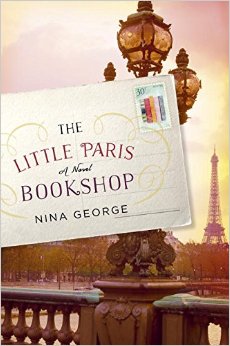 The Little Paris Bookshop
The Little Paris Bookshop
Crown Pub
June 23, 2015
Hardcover
400

“There are books that are suitable for a million people, others for only a hundred. There are even remedies—I mean books—that were written for one person only…A book is both medic and medicine at once. It makes a diagnosis as well as offering therapy. Putting the right novels to the appropriate ailments: that’s how I sell books.”
Monsieur Perdu calls himself a literary apothecary. From his floating bookstore in a barge on the Seine, he prescribes novels for the hardships of life. Using his intuitive feel for the exact book a reader needs, Perdu mends broken hearts and souls. The only person he can't seem to heal through literature is himself; he's still haunted by heartbreak after his great love disappeared. She left him with only a letter, which he has never opened.
After Perdu is finally tempted to read the letter, he hauls anchor and departs on a mission to the south of France, hoping to make peace with his loss and discover the end of the story. Joined by a bestselling but blocked author and a lovelorn Italian chef, Perdu travels along the country’s rivers, dispensing his wisdom and his books, showing that the literary world can take the human soul on a journey to heal itself.
Review:
A true romance about the love between people and books, “The Little Paris Bookshop” will delight anyone looking for a “literary” read.
The idea that not every book is meant for all readers, or even for a large audience, is true of this novel. If you’re looking for a fast-paced plot, this is not the book for you. To enjoy it you need to be willing to meander and to take the time to allow yourself to slowly sink into the world of Monsieur Perdu and friends. It’s a slice-of-life read with beautiful imagery and lyrical writing. Meant to be savored, do not be afraid to put it down and come back later. Some things are meant to be savored. “The Little Paris Bookshop” is not for everyone, but for those who enjoy the types of novels I’ve described, it is one of the best out there. It reminds me of “The Whistling Season” by Ivan Doig, which is an extremely high compliment.
All of the characters are wonderfully quirky and full of depth. Each has a backstory that is revealed in layers through both observations and dialogue. And the dialogue is excellent! Sometimes humorous, sometimes heartbreaking, there are no wasted words. It all furthers what you know about their past in addition to giving hints to their future. I want to be friends with them and would love for “The Literary Apothecary” to be an actual place I could visit.
There is one flaw that so many good books often have: the excessive epilogue. While I enjoyed how their lives turn out, the book had a natural ending in the last chapter. A small epilogue would have been nice, but there was so much crammed in that it would have been better served, if the author felt it necessary, to have been split into a couple of actual chapters.
“The Little Paris Bookshop” is not for everyone, but for those who enjoy the types of novels I’ve described, it is one of the best out there. It’s a balm for the soul, to paraphrase Monsieur Perdu.
This review is based on a complimentary copy provided by the publisher in exchange for an honest review.
Content Warning:
As this is an adult novel, there are no content warnings.
